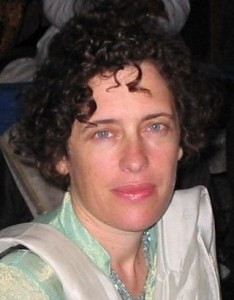The search for change
Posted on February 28, 2010.

Dr Wendy Harcourt
Guest Blogger Wendy Harcourt on Beijing +15 -– Commission on the Status of Women March 1 to 12
When told about the Commission on the Status of Women (CSW) some might think, so what? Surely this is just yet another big U.N. affair with little impact in the real world? So why, then, are thousands of women from around the world coming to New York during the first two weeks of March? So many indeed that registration closed early and those who managed to register on time are being warned that there will be restricted entry both in the official U.N. event and in the NGO sessions that are held parallel to the main events. Undeterred, more events are being scheduled in New York and emails are whizzing around with invitations to impromptu sessions set up as the parallel of the parallel.
An event not since repeated
So why? Very simply, this event held around the Commission on the Status of Women is the one official opportunity on the U.N. calendar for women to participate in holding their governments accountable to the promises made 15 years ago at the Fourth World Conference on Women held in Beijing, China. It is, if you like, a substitute for another World Conference on Women.
Beijing remains the largest and most influential of all the World Conferences on Women. Nearly 180 government delegations and 2,500 nongovernmental organizations met to discuss a broad range of issues concerning women.With high profile speakers such as Hillary Rodham Clinton, Julius Nyerere of Tanzania, Jane Fonda and many heads of UN and government ministers it was an event that has not been repeated.
Many women’s organisations see the Beijing Conference as a turning point in the world’s understanding of women’s human rights. And the official document agreed to — the Platform of Action — remains the standard to which governments committed to meet their promises to the world’s women.
But why come to New York to do so?
This is perhaps one of the most vital differences between women’s and other movements that satellite around the U.N. This is a learning space for intergenerational knowledge sharing. New York becomes a meeting point, a source of information sharing, and a place to strategise on the world today. These crucial activities will not be happening so much in the official panels and discussions but in the corridors and in the parallel sessions to official talks.
The discussions wont just be about the 12 points of action, but rather the impact of the global financial, food, environmental, care and other crises on women today. In some ways the world looks much bleaker than 15 years ago, but in others it is a world much more understandable, better known as a result of communication technologies and one where women are figuring much more prominently even though there are still only nine female incumbent heads of state.
But at the top of the list is still the deep economic crisis related to systemic failure with entrenched gender inequalities and continued marginalisation of women in access to resources, jobs and leadership. Women are still the majority of the world’s poorest people, and the financial crisis and the deepening economic recession is impacting on them most.
Last year, the 53rd CSW looked at economic and political empowerment of women. It will be important in this 54th session not to lose sight of how important economic analysis from a gender perspective will be in order to face and overcome the crisis. Economic analysis has to become gendered and in a no nonsense way, full of the political and social realities as much as the technical measurement of the ups and down of indices. In sharing information in New York and in the myriad of reports, tweets, blogs, messages and reports, the CSW promises to be a place to understand how decisions happening at the global and state level are making profound differences to women struggling to make livelihoods meet at the ground level.
In short, the sessions in their no doubt organizationally chaotic way will help those concerned about women’s rights, gender inequality and empowerment to go beyond the figures. These figures can mask the tough realities but also they miss the places for hope and change. We need both to face the grim situation we are in but also to look at the energy and resolution in overcoming what can appear impossibly hellish situations.
Continued search for change
In the SID Forum coverage of the CSW we plan to look at the multi-faceted reality of the impact of economic crises on women. It is crucial to get this right. But even more importantly through investigating how women are seeing the crisis, embedded within their lives, their analysis, we also want to search out their strategies for change.
In this way the SID Forum will delve deeper into how the economic crisis could create opportunities for change that recognizes the complexities of women’s productive and reproductive lives and ways forward out of the crises. Beijing’s Platform for Action is an important document because it is built on many thousands of discussions around the world that brought out just such complexities and the vision for change and then distilled them into a doable Platform of Action.
Beijing still needs to become a reality, but also 15 years later, even more is needed with the current scenarios we are facing. It is these scenarios we plan to report during our discussions on the CSW in our continued search for change.

